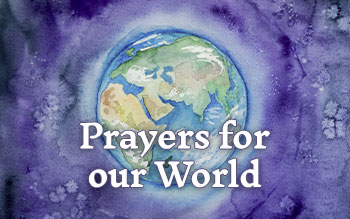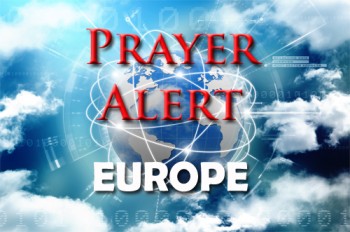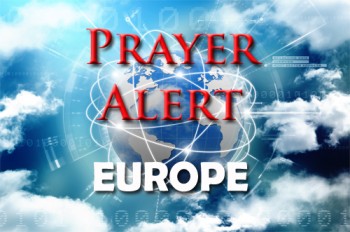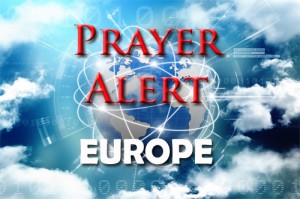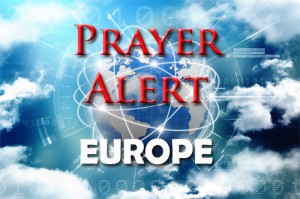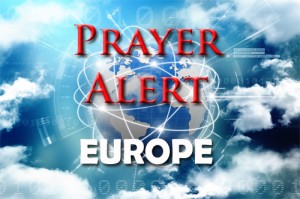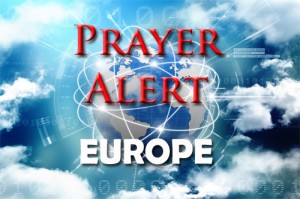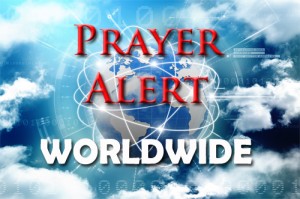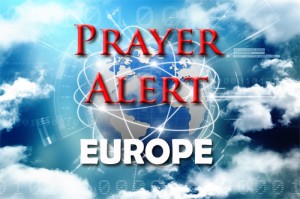Displaying items by tag: Poland
Poland: U.S. Agrees To Station 'About 1,000' More Military Personnel
The United States has agreed to station "about 1,000" more military personnel in Poland as the government of the East European country seeks to counter what it perceives as a growing Russian threat.
However, the joint U.S.-Poland declaration signed by President Donald Trump on June 12 stopped short of calling it a permanent presence, potentially easing Kremlin concerns about a larger U.S. military presence near its western border.
Trump earlier in the day said the increase in U.S. forces in Poland could come at the expense of Germany -- whom he criticized for underspending on NATO defense and overspending on Russian gas.
"We would be taking them out of Germany or we would be moving them from another location. It would be no additional troops to Europe," Trump said shortly before reaching the agreement.
The United States has 52,000 troops based in Germany, Trump said. The Pentagon told RFE/RL that the sourcing of the military personnel and other details of the agreement "are still being worked out."
About 4,500 U.S. troops have been stationed in Poland on a rotational basis for the past few years in response to Russia's 2014 annexation of Crimea and Moscow's continued military support for separatists in eastern Ukraine.
NATO separately placed about 1,200 troops in Poland in 2017 as part of its efforts to beef up deterrence against Russia in Eastern Europe and recently agreed to invest $269 million to support U.S. forces in the country.
The 1997 NATO-Russia Founding Act pledges the alliance to carry out its collective defense without the "additional permanent stationing of substantial combat forces." However, the pledge only applied to the "current and foreseeable security environment" at the time.
NATO Secretary-General Jens Stoltenberg said the June 12 U.S.-Polish agreement was "fully in line with NATO's international commitments."
"When the world changes, we have to adapt to make sure that we can continue to protect all allies," Stoltenberg said in the statement, possibly hinting at Russia's actions in Ukraine.
Poland last year proposed spending as much as $2 billion to host a permanent U.S. armored division, which consists of between 10,000 and 15,000 troops, to strengthen its defense against Russia.
Russia, which occupied part of Poland under the tsars, "is again showing its imperial face" by its actions in Ukraine, Polish President Andrzej Duda said at the joint press conference with Trump.
According to the agreement, the U.S. military will expand its "enduring presence" in Poland by about 1,000 personnel "in the near-term." Poland will finance that expanded presence as well as additional military infrastructure, including a U.S. divisional headquarters.
Russia could seek to build up its military presence in the exclave of Kaliningrad in response, former U.S. Army Europe commander Lieutenant General Ben Hodges told RFE/RL. He said the Kremlin could also put more pressure on Belarus to allow its troops into that country. Both Kaliningrad and Belarus border Poland.
Though the U.S. agreement fell far short of Poland's initial request, it is something that "could be scaled" up in the future should developments in Eastern Europe demand it, Eugene Chausovsky, a Eurasia analyst at Stratfor, told RFE/RL.
"This is something that the Polish government can claim as a victory of sorts," he said of the deal.
Poland helped win over Trump's support for the increased military presence by agreeing to purchase U.S. fighter jets as well as liquefied natural gas, Chausovsky said.
Trump confirmed during the joint press conference that Poland will buy nearly three dozen F-35 fighter jets -- worth in excess of $2.5 billion -- as well as an additional $8 billion of liquefied natural gas.
Poland is seeking to wean itself off Russian energy, which accounts for nearly 70 percent of its gas imports. Duda will travel to Houston with Energy Secretary Rick Perry to meet executives of U.S. energy companies during his six-day visit to the United States.
Washington and Warsaw are seeking to halt Russia's plans to build an $11 billion gas pipeline to Germany. The pipeline would make Germany a "hostage of Russia" while also supporting the Russian economy, Trump said.
"We are protecting Germany from Russia, and Russia is getting billions and billions of dollars of money from Germany," Trump said ahead of his meeting with Duda.
He highlighted that Germany was only spending about 1 percent of gross domestic product on defense, below the 2 percent threshold set by NATO members in 2014.
Hodges said moving troops from Germany to Poland would be taken as a sign that the United States was punishing Berlin for its failure to meet defense spending limits.
However, he said, maligning Berlin was not in Washington's interest.
"We have to make sure that we treat Germany as our most important ally. Spending is such a small component of the relationship. You can't put a price tag on" all that Germany does for the United States, said Hodges, who is now with the Center for European Policy Analysis.
Article by Todd Prince
Poland: Just Don't Tell Anyone
A survey showed that Poland's pro-EU opposition has a ten-point lead over the ruling nationalists ahead of European Parliament elections - a sharp turnaround that some analysts linked to a film about sexual abuse scandals in the Catholic Church. The documentary Just Don't Tell Anyone, which shows victims of child abuse confronting priests who had sexually abused them, has shocked Poles. The powerful Catholic Church has close ties with the governing Law and Justice party (PiS). The documentary has been viewed more than 18 million times on YouTube since it was released on 11 May. PiS has responded to public outcry by announcing tougher penalties for child abuse, but it has also stressed that the instances of abuse by priests should not be used as a reason to attack the Catholic Church. PiS sees Catholicism as a key element of Poles' national identity. Some say that the church is too powerful.
Poland: Harry Potter books burnt
Priests at a Catholic parish in northern Poland have burnt books, including the Harry Potter series, and other items that their owners said had evil forces. Images from the burning at Gdansk’s Mother of Church parish on Sunday were posted on Facebook by a Catholic foundation that uses unconventional ways of religious work. In the pictures, flames are consuming an African wooden mask, figurines of elephants, and books on personality and magic, as well as those by J K Rowling, all brought in by parishioners. A priest and altar boys watched the book-burning. The foundation said the book-burning was intended to alert parishioners to bad influences which it says come from magic and the occult. Comments under the post condemned the action, recalling that it also happened in Nazi Germany before World War II.
Poland: climate change conference
Participants at the UN climate talks in Poland have discussed how they will keep promises made in 2015 to reduce their climate footprint by 2020. Global warming occurs when carbon dioxide and methane emissions increase, trapping solar energy. As more gases enter the atmosphere, earth’s temperature rises rise; changing the timing and length of seasons and the amount and frequency of rainfall - rising sea levels, flooding, droughts and a range of ecosystem changes affecting life on earth. Two years ago, research found (see) that widespread adoption of vegetarian diets would cut food-related emissions by 63%. There are 3.6 billion sheep, cattle, goats and buffalo on the planet, 50% more than fifty years ago. Methane from their digestive systems is the single biggest human-related source of greenhouse gas. This is a great concern to the livestock industry worldwide. See also
Polish election result
Poland's electoral officials have reported that a pro-European Union opposition party has defeated the ruling conservatives in local elections in Warsaw. The 21 October national elections were a popularity test for the conservatives, whose policies have drawn street protests and prompted clashes with EU leaders. The regional elections decide the makeup of local governments and regional parliaments, including several mayoral races. These elections possibly foreshadow legislative and European elections in 2019.
Poland will block EU sanctions against Hungary
The European parliament voted to sanction Hungary for neglecting norms on democracy, civil rights and corruption. Since 2010, Hungarian prime minister Viktor Orban has pressurised courts, media and non-government groups to prevent migrants entering Hungary. He has also led opposition to Angela Merkel and others who want Europe to take in more Muslim refugees. Poland, the biggest former communist country in the EU, will oppose any sanctions imposed by the bloc on Hungary. Its prime minister, Mateusz Morawiecki, said, ‘Every country has its sovereign right to make internal reforms it deems appropriate, and actions aimed against member states serve only to deepen divides in the EU and increase citizens’ current lack of confidence to European institutions.’ A BBC report says that Mr Orban appears increasingly isolated among European conservatives, but is being applauded by nationalist parties.
Poland: Print shop owner refused to create a homosexual banner
Poland’s Supreme Court ruled against a print-shop owner who refused to create a banner for a homosexual group. He believed it would be wrong to promote something that God calls sin. The matter began in 2015 when Adam J., turned down the project for the LGBT Business Forum. The matter went to the regional court which ruled against Adam. While Polish law allows refusal for a ‘justified cause,’ his religious convictions were not a sufficient argument. Poland’s minister of justice, Zbigniew Ziobro, filed an appeal to the Supreme Court, which upheld the ruling on 14 June. Ziobro said the ruling violates the freedom of conscience enshrined in the constitution. ‘It’s about principles not prejudice. If a service provider refuses to carry out a service, the customer may turn to their competitors.’ Alliance Defending Freedom International has now filed an intervention with the Constitutional Tribunal of Poland decrying the outcome of Poland’s high court.
Poland: Holocaust complicity bill
Recently a bill was approved that makes it illegal to accuse Poland of complicity in crimes committed by Nazi Germany, including the Holocaust. The bill bans the use of terms like ‘Polish death camps’ in relation to Auschwitz and others located in Nazi-occupied Poland. To become law, the bill must be signed by President Duda, who has expressed his support. Historians agree that Polish individuals and groups collaborated with the Nazi occupiers, but recent Polish governments have sought to challenge that narrative. This legislation will outlaw any remark that attributes responsibility to Poland for the Nazi crimes. Benjamin Netanyahu called the bill ‘baseless’, saying, ‘One cannot change history, and the Holocaust cannot be denied.’ Death camp survivors fear Holocaust deniers are winning. The new legislation risks blurring the historical truths regarding the assistance the Germans received from the Polish population during the Holocaust. There is no doubt that the term ‘Polish death camps’ is a historical misrepresentation.
Poland: Catholic Church of the far right
Far-right Polish groups are using links to religion to gain mainstream influence. A terrified onlooker saw hooligans chanting overtly racist and fascist slogans, calling for ‘White Poland’, and shouting ‘Beat the red scum’. He saw priests simply moving to the rhythm of these chants, doing nothing about them. Approaching two of them, he asked, ‘Is this what your Catholicism looks like?’ They lowered their heads, but said nothing. The church’s hard-line nationalist wing is out of control, and nobody is able or willing to stop it. Observers point to the close connections between the Catholic Church and two high-profile nationalist movements. The messages that Catholicism is the only true religion and that Poles are superior to other nations are thinly veiled by shallow humanitarian slogans.
Poland's constitutional crisis
The limits of the EU’s integrationist ambitions are being exposed by a fight between Poland’s hard-line conservative government and the European Commission, because Poland is failing to maintain the ‘rule of law’. There has long been a simmering east-west split over migration, and fundamental values have burst into open warfare. Many believe this constitutional crisis could pull Europe apart. Poland is accused of reneging on the commitment it made to maintain ‘stable institutions guaranteeing democracy, the rule of law and human rights’. An Article 7 sanction procedure will be triggered against Poland if it fails to address concerns over judicial reforms or starts firing Supreme Court judges. On 26 July the European Commission set a one-month deadline for the Warsaw government to ‘solve all the problems identified’ in its judicial overhaul. The commission also set a red line for Poland, ‘if it decides to fire any of the Supreme Court judges’. Poland criticised the threats from the EU to halt their voting rights in the bloc as ‘blackmail’.
